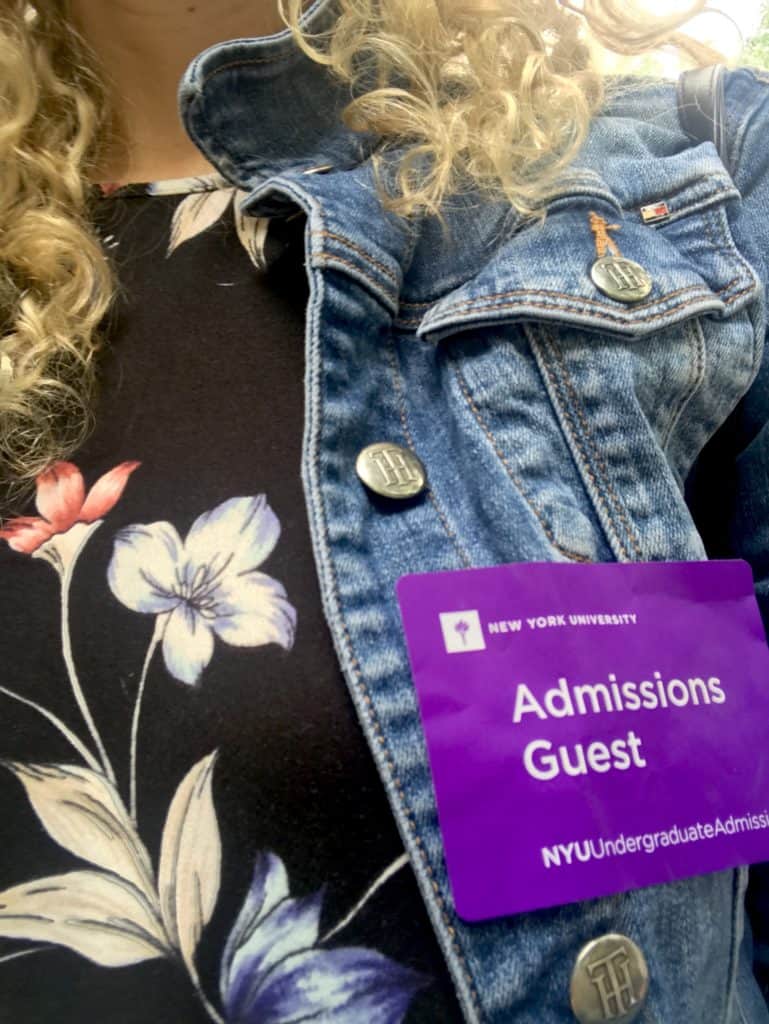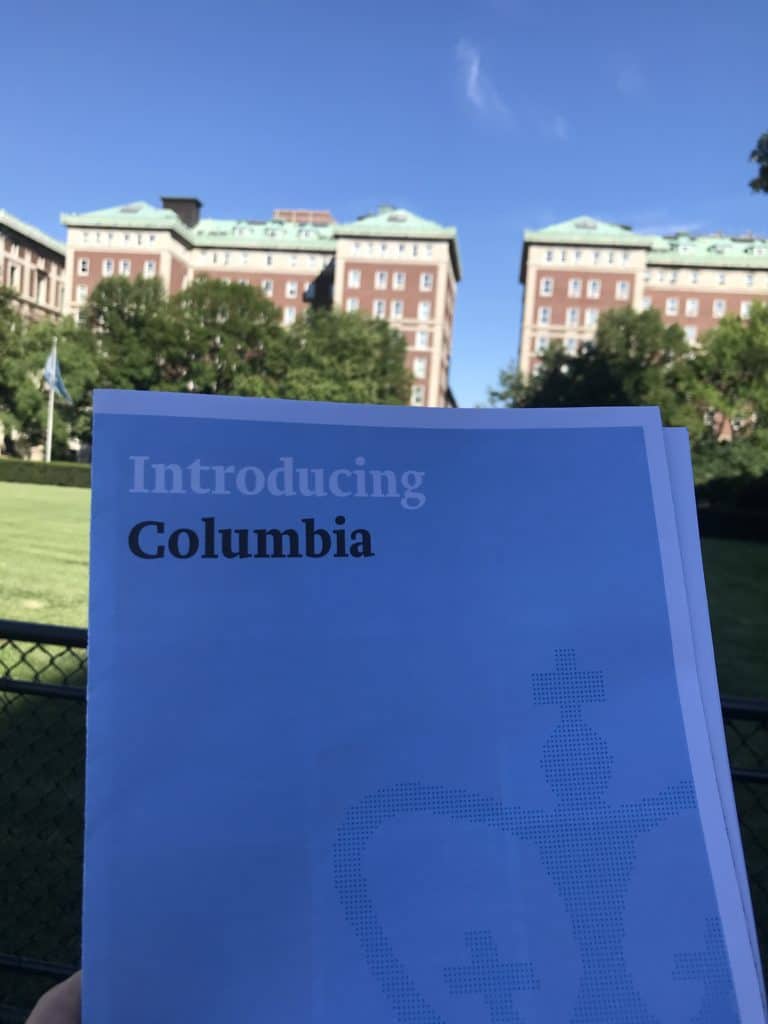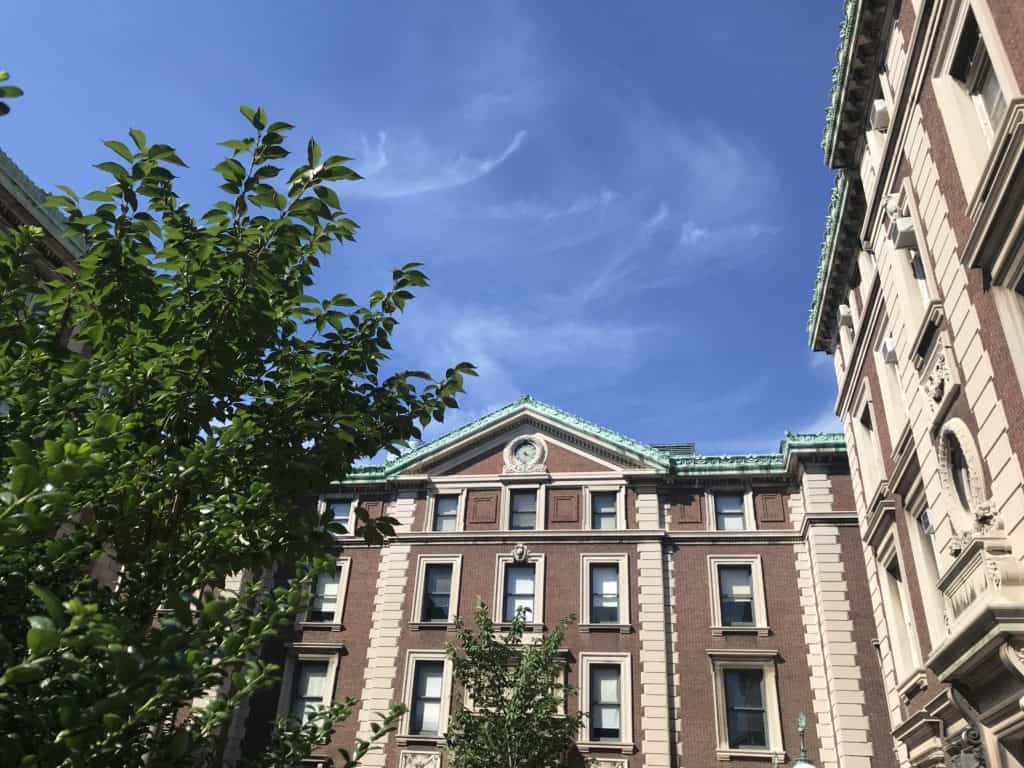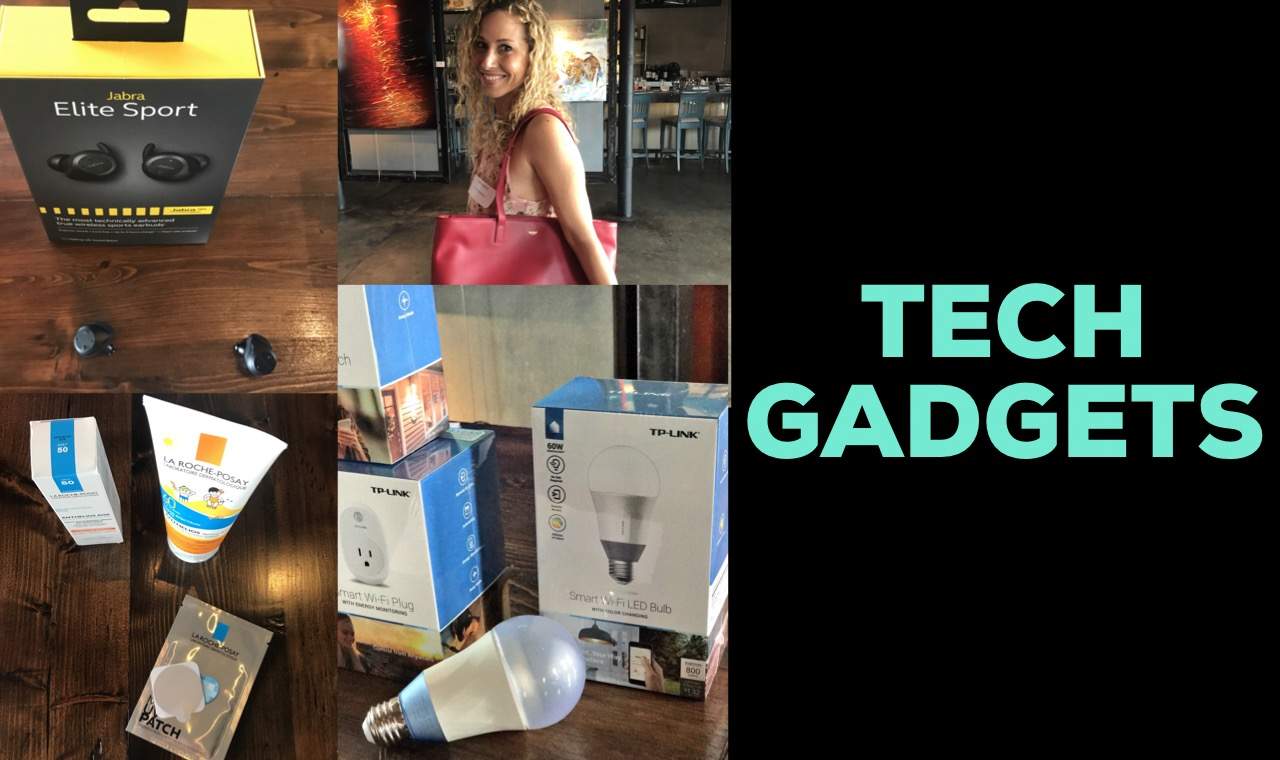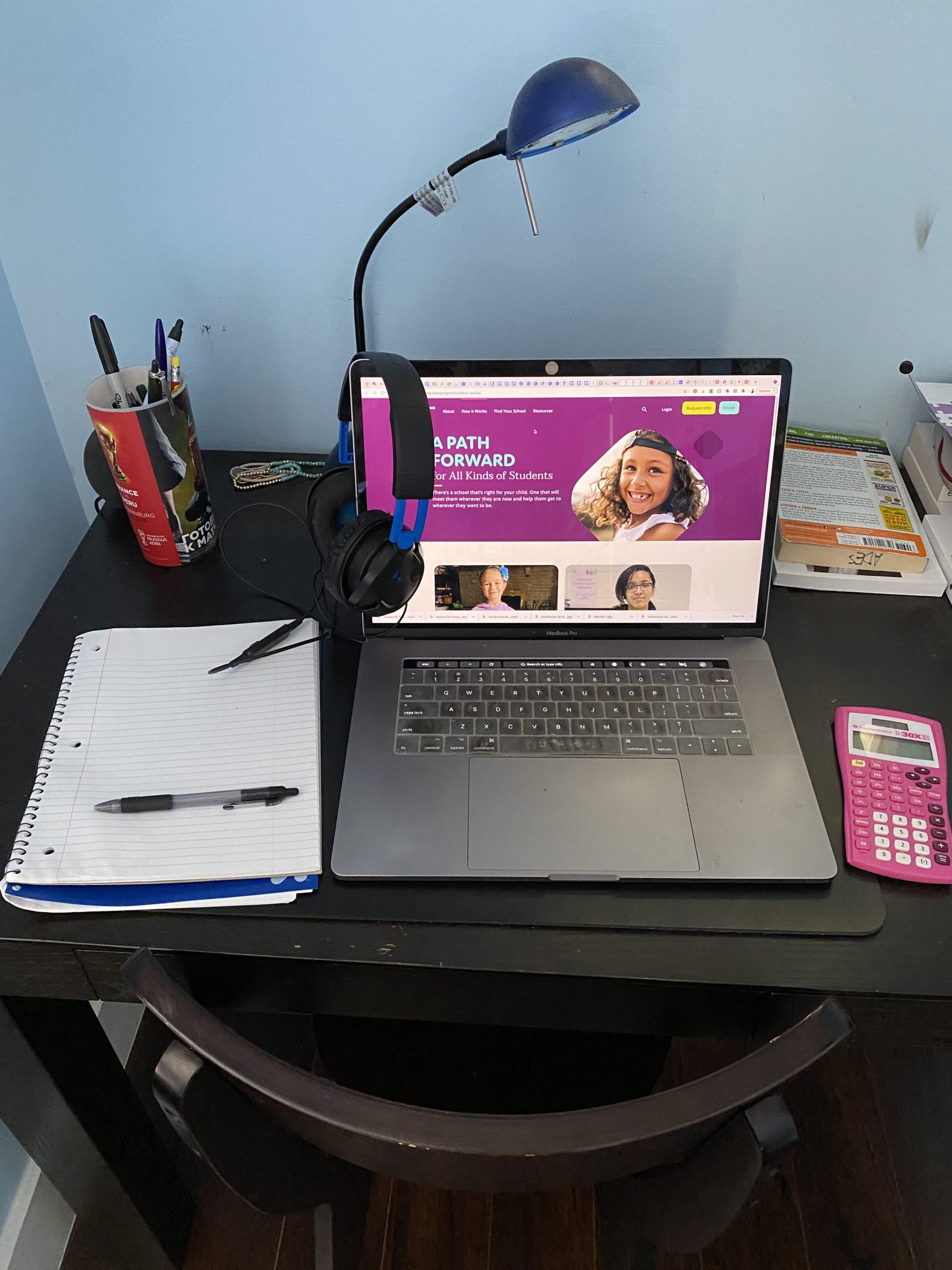What every parent should know about college tours
If your child is growing up too fast and high school graduation seems to be approaching quickly, college tours might be on your to-do list. Although I don’t believe you have to visit college campuses before you apply, a tour can be very helpful when narrowing down the schools your teen will apply to.
Many families plan their college tours during senior year, especially in the fall semester, while others schedule them after the acceptance letters start coming in. It’s become more common to start earlier in the process, especially if Early Decision is an option and there’s a need to start narrowing down choices before November 1. If you’re a newbie in this college application process, like me, Early Decision is binding, and you sign a contract stating your child will attend if accepted. It improves the chance of getting admitted into the dream school but not all schools offer the option (for example, state schools don’t) and if you need financial aid, it can limit your options because you need to rescind your application from other schools if accepted. If you are considering Early Decision, then a campus visit might be just what your child needs to decide what their top choice is.
College tours are free, but it’s best to sign up in advance. Some schools do take walk-ins, but most require advance registration.
If an in person visit is not a possibility for now, a virtual campus tour can be helpful. Some colleges offer video tours and virtual events, so make sure to check them out as well.
A college visit can be very useful. It’s the perfect opportunity to see if your child fits in the school you visit and gather materials and observations to answer school-specific application prompts.
Top tips when planning a college tour
- Make a list of the schools your teen considers their top options. Discuss whether they are a realistic choice, academically and financially. Then narrow down the list to the ones you can and feel compelled to visit.
- If possible, include a mix of different types of schools. Visit a state school, an urban school, a traditional campus, a big university, and a smaller college. See how your teen reacts. My son, for example, realized he prefers to be close to a big city rather than a rural area. My daughter also prefers urban settings to small college towns.
- Take advantage of any family trips you have planned. Add an extra day so you can tour nearby colleges and universities. If you have more than one child, take younger siblings on the tour, especially if they’re close in age.
- Schedule visits as soon as you settle on dates. Tours can fill up quickly during certain times of the year, so make sure you book in advance.
- Check to see whether your child’s prospective major offers a school-specific tour. Register before or after the general campus tour. Some have very limited space and are in high demand.
- Familiarize yourself with the schools before your visit by using their website. All offer virtual tours and tons of information regarding their admission process. They also offer a cost calculator so you can see whether your family would be able to afford it.
- Take notes. Even better: make sure your teen writes down what stands out and what they like at every single college you visit. Those notes come in very handy when they have to write their college essays! If there’s something you dislike, it’s also important to jot it down. You might think you’ll remember each school but our memories tend to be fragile.
- Ask questions. Some teens prefer to do the asking, while others are okay with parents taking the lead. Ask about the curriculum, teacher ratio, class size, and anything else that you consider important. Parents should inquire about campus safety measures and the accessibility of the campus for students with disabilities. However, be considerate of other families and don’t monopolize the questions.
- Make sure you speak to current students. They give you a different perspective than admissions officials. Ask them about the food, safety, stress level, dorms, and their quality of life. I preferred my son to ask those questions because teens relate to each other more easily. Take advantage of the student-led campus tours to also get the perspective of somebody who already went through the process. My kids always ask why the tour guide chose that specific school and the answers can be very enlightening.
- Keep your eyes and ears open but don’t be afraid to stand back. I observed everything, saw my son’s reactions to the schools we visited, and asked questions. However, I let my teen take the lead and tried to be as unobtrusive as I could be.
- Don’t forget to sign in at the college tour meeting point, welcome center or at the undergraduate admissions office. Although a visit won’t necessarily improve your child’s acceptance chances, it never hurts for that school to know that you made the time to be there in person. College counselors say it is extremely important to demonstrate interest in the school, so visiting in person can make a difference.
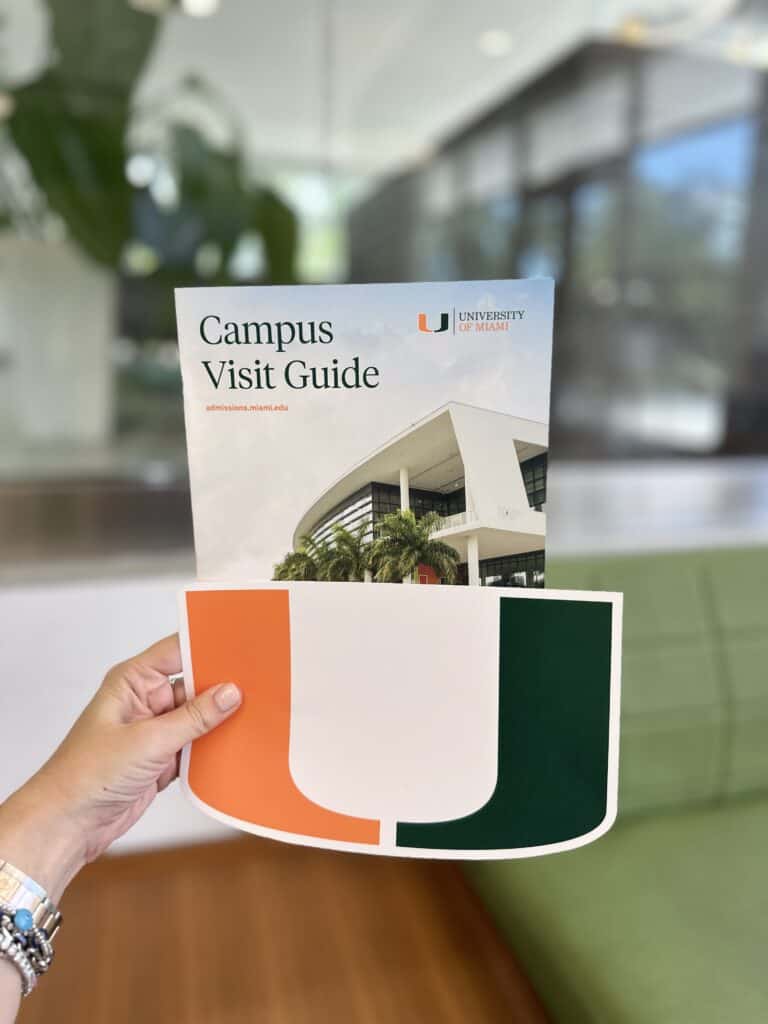
What to expect during a college tour
Parents can expect a variety of things when they go on a college tour with their child. College tours are typically designed to provide prospective undergraduate students and their families with a glimpse of campus life, academic offerings, and the overall atmosphere of the college or university.
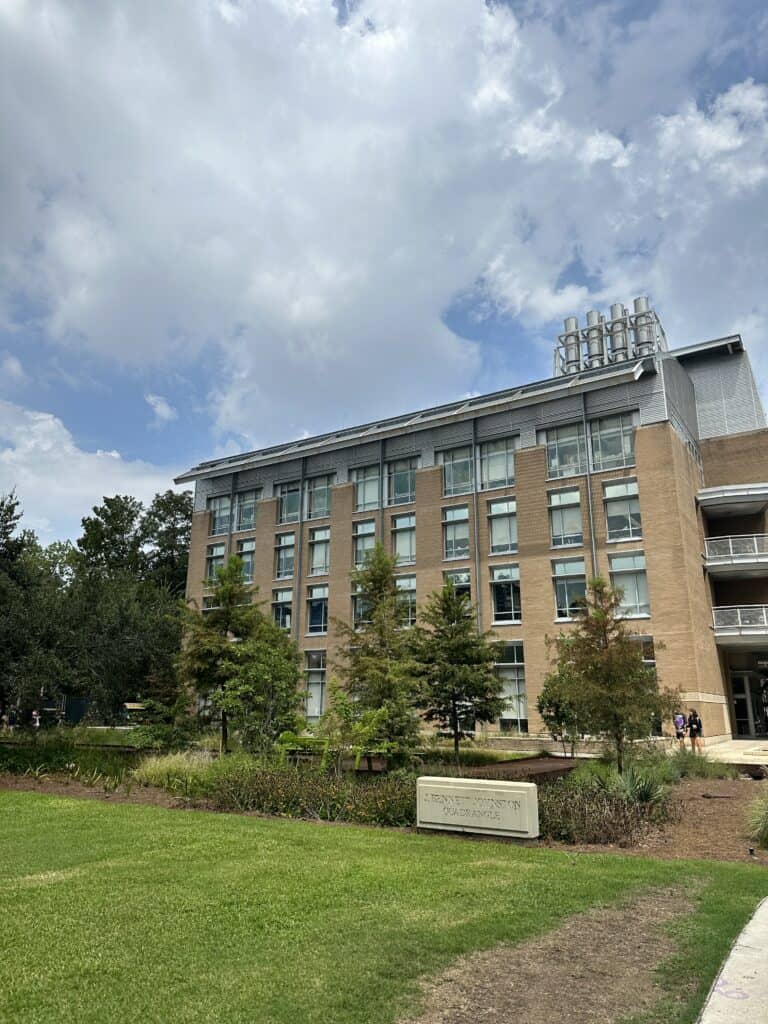
Here is what to expect during a college tour:
- Information Sessions: Most college tours begin with an information session led by admission counselors. Parents can expect to learn about the college’s history, mission, academic programs, admission requirements, financial aid options, and application process. This is an opportunity to ask questions and gather important information.
- Guided Campus Tour: After the information session, parents and students are usually taken on a guided walking tour of the campus. This tour may include visits to academic buildings, dormitories, dining facilities, libraries, recreational areas, and other important campus locations. Parents can expect to see the physical aspects of the campus. Tip: get a campus map to help you identify what you are walking by.
- Interactions with Current Students: College tours often include interactions with current students, like the student tour guide. Parents and students can ask questions to get a sense of what life is like on campus, including extracurricular activities, student organizations, and the overall student experience.
- Meeting Faculty or Staff: Some college tours, especially if your child has been invited to a special event for prospective students, may include opportunities to meet with faculty members, academic advisors, or staff members from specific departments. This can be a valuable opportunity for parents and students to learn more about academic programs and resources. After the pandemic, these meetings need to be requested in advance unless they are a part of special programming.
- Housing Options: Parents can expect to see different types of housing options, including dormitories and residence halls.
- Campus Facilities: Parents should expect to see various campus facilities, such as the library, fitness center, laboratories, and recreational areas. This can give them a sense of the resources available to students.
- Admissions and Financial Aid Offices: College tours often include visits to the admissions and financial aid offices. Parents can learn about the application process, deadlines, and financial aid options available to students.
- Q&A Sessions: Many college tours include question-and-answer sessions where parents and students can ask specific questions about the college. It’s a good opportunity to seek clarification on any concerns or doubts.
- Free Time: Depending on the length of the tour, parents and students may have some free time to explore the campus on their own, visit nearby attractions, or have meals in campus dining facilities.
- Next Steps: At the end of the tour, parents can expect to receive information about the next steps in the application process, including how to apply, application deadlines, and important contacts. Tip: set a reminder on your phone if there are special scholarship application deadlines.
It’s important for parents to come prepared with questions and take notes during the tour to help their child make an informed decision about which college or university is the best fit for them. Additionally, parents should encourage their child to actively participate in the tour and ask questions that are important to them.
Is it worth doing a college tour before your child is accepted?
Yes, there can be value in doing a college tour before your child is accepted. Here are a few reasons why:
1. Exploring Options: College tours provide an opportunity to explore different colleges and universities to determine which ones align with your child’s interests, preferences, and goals. It allows them to get a sense of the campus environment and culture.
2. Motivation and Goal Setting: Visiting colleges can motivate your child and help them set academic and personal goals. Knowing what’s ahead can inspire them to work harder in high school to achieve admission to their preferred institution.
3. Understanding Requirements: College tours often include information sessions where admission requirements, deadlines, and the application process are discussed. This early exposure can help your child plan and prepare accordingly.
4. Financial Planning: College tours can also provide insights into the cost of attendance and available financial aid options. This information is crucial for financial planning and identifying potential scholarship opportunities.
5. Networking and Connections: Attending tours may allow your child to connect with current students, faculty, and admissions staff. These connections can provide valuable insights and guidance throughout the application process.
6. Demonstrated Interest: Some colleges track “demonstrated interest” as a factor in their admission decisions. By visiting a campus, your child shows genuine interest in the school, which can potentially enhance their application.
However, it’s essential to keep in mind that visiting colleges before acceptance may not be possible or practical for everyone due to geographical or financial constraints. In such cases, virtual tours, informational webinars, and reaching out to current students or alumni online can also provide valuable insights and help with the decision-making process. Ultimately, the decision to visit colleges before acceptance depends on your family’s circumstances and your child’s preferences.
Are virtual college tours useful?
Virtual college tours can be useful and have their advantages, especially when visiting campuses in person isn’t feasible. Here are some reasons why virtual college tours can be valuable:
1. Accessibility: Virtual tours make it possible to explore colleges and universities from anywhere in the world, overcoming geographical barriers. This accessibility is particularly helpful for international or out-of-state students.
2. Cost-Efficiency: Virtual tours are typically free or low-cost, eliminating the expenses associated with travel, accommodation, and meals that come with traditional in-person visits.
3. Convenience: You can take virtual tours at your own pace and schedule. This flexibility allows you to fit college exploration into your busy life without disrupting work or school schedules.
4. Safety and Health: Online tours became even more relevant during times of health concerns, such as the COVID-19 pandemic. They provide a safe way to explore campuses without risking exposure to illness.
5. Revisit at Any Time: Virtual tours often remain accessible on college websites, allowing you to revisit and review campus facilities and information as needed.
6. In-Depth Exploration: Some virtual tours offer interactive features, 360-degree views, and multimedia presentations that can provide an in-depth look at campus facilities, academic programs, and student life.
However, there are some limitations to consider:
1. Lack of Physical Experience: Virtual tours cannot fully replicate the physical experience of being on campus. You won’t feel the college life atmosphere, interact with current students, or get a sense of the local community.
2. Limited Perspective: Virtual tours may highlight the best aspects of a campus and omit certain drawbacks. It’s essential to complement virtual tours with additional research and possibly in-person visits if possible.
3. Technical Issues: Technical glitches or limitations in the virtual tour platform can sometimes disrupt the experience.
So even if you are not seeing a beautiful campus in person, virtual college tours are a valuable tool for initial research and can help you narrow down your list of potential colleges. However, if you have the opportunity, combining virtual tours with physical visits when feasible can provide a more comprehensive understanding of a college or university.
Good luck with the college application process. Make sure to check on your teen to see how they are handling the pressure and stress. This is an important stage in their lives, but our children’s health is always the top priority, and not all schools or career paths are good for everybody.

